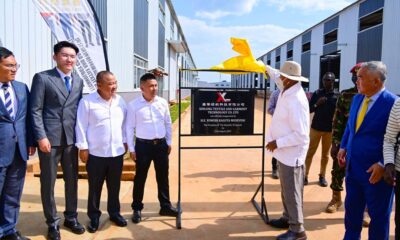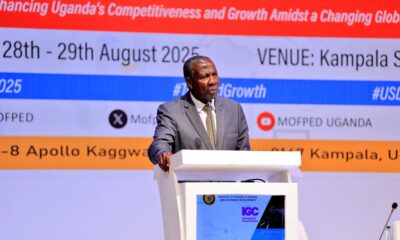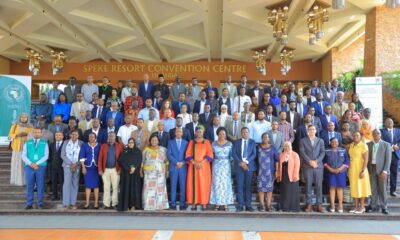Economy
Ugandan Coffee Poised for Chinese Market Boom as Investors Eye Major Expansion
A significant delegation of Chinese investors has concluded a transformative tour of Uganda, signalling a new era for the East African nation’s burgeoning coffee sector as demand for the cash crop surges in China’s rapidly expanding market. The visit, aimed at forging robust business ties with local coffee farmers, culminated in a high-level conference on Tuesday, discussing strategies to dramatically boost coffee exports to China.
The Chinese delegation, accompanied by officials from the Chinese embassy and the Ugandan government, traversed coffee farms and farmers’ cooperatives across eastern and western Uganda, gaining firsthand insight into the country’s coffee production capabilities.
“This visit marks a significant milestone in strengthening agricultural trade and investment ties between our two countries,” stated Vincent Bagiire, permanent secretary of Uganda’s Ministry of Foreign Affairs, at the Uganda-China Coffee Trade and Investment Conference. He emphasised the tour’s objective to “showcase Uganda’s coffee potential, attract investment in value addition, and promote our coffee globally.”
Bagiire highlighted Uganda’s strong position as Africa’s second-largest coffee producer, asserting that its “high-quality Arabica and Robusta beans are perfectly suited to meet [China’s] growing demand for premium and speciality coffees.” Evidence of this growing synergy is already apparent, with Uganda’s coffee exports to China witnessing a remarkable 190 per cent increase in March 2025 alone, cementing China’s position as Uganda’s second-largest coffee market in Asia.
Ugandan Ambassador to China, Oliver Wonekha, underscored the shared commitment of both nations to fostering meaningful collaboration in the coffee sector. “Our coffee sector is a cornerstone of the economy, supporting millions of smallholder farmers and contributing significantly to our national GDP,” Wonekha stated. She noted that Uganda’s Robusta and Arabica varieties are gaining international acclaim, making them ideal for China’s dynamic coffee market, which is expanding at an impressive rate of 15 per cent annually.
Wonekha affirmed Uganda’s dedication to “removing barriers and creating a seamless pathway for Ugandan coffee to reach Chinese consumers.” She urged the establishment of joint ventures leveraging Uganda’s coffee expertise and China’s market reach, and prioritised technology transfer to enhance farming practices and processing capabilities.
Feng Zhiqiang, executive director of Guangzhou Yike Food Company, conveyed the Chinese delegation’s strong impression of the professionalism observed throughout Uganda’s coffee value chain. “We can see that the coffee industry in Uganda is undergoing a sophisticated transformation. Whether in Robusta or Arabica, many demonstration areas are equipped with international standards,” he remarked.
Chinese Ambassador to Uganda, Zhang Lizhong, provided compelling statistics on China’s escalating coffee consumption, which has surged by 167 per cent over the past decade, reaching 350,000 tons annually. In 2023, China’s coffee imports saw a 20 per cent year-on-year growth, totalling 150,000 tons, valued at nearly 840 million U.S. dollars. Zhang reiterated that China and Africa are good partners on a path to modernisation, with China supporting the independent development and self-reliance of African countries.
Coffee is a key commodity prioritised by Uganda for economic transformation, with approximately 1.7 million households in the country dependent on its production. The sector’s robust performance was underscored by the agriculture ministry’s report that the country earned its highest coffee foreign exchange earnings in 30 years last fiscal year, reaching 1.14 billion U.S. dollars in 2023/2024, up from 846 million dollars in the previous year.
This strong foundation, coupled with burgeoning Chinese demand, positions Ugandan coffee for unprecedented growth in the coming years.
Comments



















